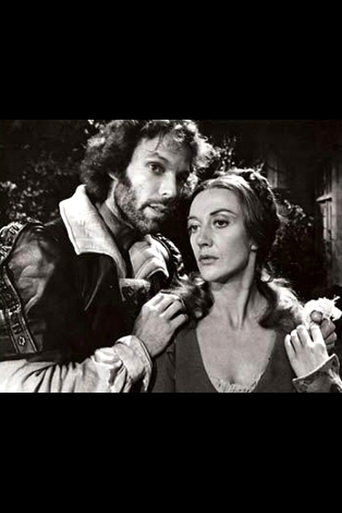

This is simply one of the finest plays written, performed, and produced. I have seen both versions. I first saw the Richard Chamberlain and Eileen Atkins version as a girl and later was shown the John Gielgud version by a friend who by some slight of hand had it. It is simply exquisitely written and exquisitely performed. If you haven't read or seen this work don't miss out. It does more for the human heart, mind, body and soul than any other work I've read or seen in theater or television and those number quite a lot. It celebrates language and spirit and intelligence and wit. It provides hope which, speaking for myself, is in shockingly low supply.
... View MoreI love this play!!! I love the language, the comedy, the characters & the story. This is my most favorite play and that's saying something for a theatre person. I fell into playing a part in it (Nicolas) when I was fifteen and have loved it ever since. I've been in it twice and directed it three times. I was commiserating with the other writers in this list about the play not being available on DVD or VHS. The next day while my wife and I were (finally) cleaning out our garage, I opened a box that had old videotapes in it and there was one labeled "The Lady's Not for Burning, Nov. 1987". I taped it off the air when it was broadcast during a KCET fund-raising campaign. Using my Mac and the EyeTV unit I have, I was able to digitize it and copy it to my hard drive. The next step will be to make my own DVD. It has some video dropouts and glitches, as would be expected from a videotape made almost 20 years ago, but the soundtrack is complete and the picture looks pretty good. It runs 100 minutes, somewhat less than the length stated in IMDb and I know from watching it that there are some lines and references missing. (Thomas' claim that he also killed "a pimp", for instance.) I feel very lucky to have been able to find this lost treasure.
... View MoreOne of the great poetic drama works of the 20th century, this has been televised three times; in 1954 with Christopher Plummer, Richard Burton(from the original Broadway cast that starred John Gielgud)and Mary Ure, this version and a later one. Would that this one could be on DVD. Fry has been trying to get this one done again definitively. It is known for the paraphrase Margaret Thatcher made of it when she said, "The lady's not for turning!" Set on a sunny rainy afternoon,and evening in the Middle Ages,the play is a whimsical-serious parable of the aftershock of World War Two, the meeting of a soldier wanting to end it all and a lovely young woman accused of witchcraft and sentenced to burning. It's for people who love language and the interplay of rich comic characters (the townspeople are hysterical).
... View MoreHow can my memory of watching this on PBS almost thirty years ago be useful here? Maybe by comparing it to the recent remake. I was disappointed by the remake because the tone had changed. I remember the "original" as being a much darker comedy and therefore(?) a much more inspirational love story -- almost a bi-polar experience.
... View More